Driving Rules In Dubai UAE: Driving in Dubai, UAE, can be an exciting experience, but it’s essential to be aware of the local traffic rules and regulations to ensure safety on the road. Whether you’re a new resident or a tourist planning to drive in Dubai, understanding the driving rules is crucial. In this comprehensive guide, we’ll walk you through the most important driving rules in Dubai, explained in simple terms to make your journey safe and stress-free.
1. Driving License Requirements

Before you hit the road, ensure you have the appropriate driving license. Tourists with a valid international driving permit can drive in Dubai for up to six months. However, residents need to obtain a UAE driving license.
2. Seat Belts Are Mandatory
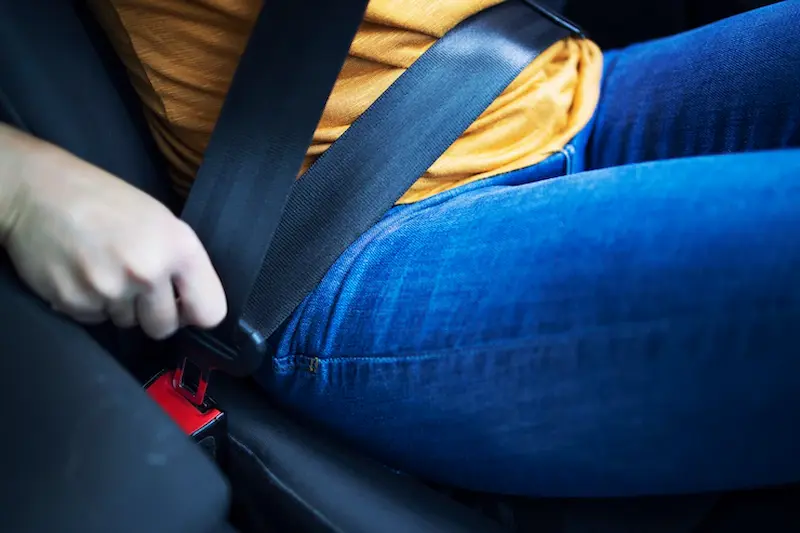
Wearing seat belts is not just a suggestion; it’s the law. Ensure that all passengers in the vehicle, including those in the back seat, are wearing seat belts at all times.
3. Mobile Phones are a Distraction

It is completely forbidden to use a cell phone while driving unless you have a hands-free device. The fines for using a mobile phone without a hands-free kit can be hefty.
4. Speed Limits
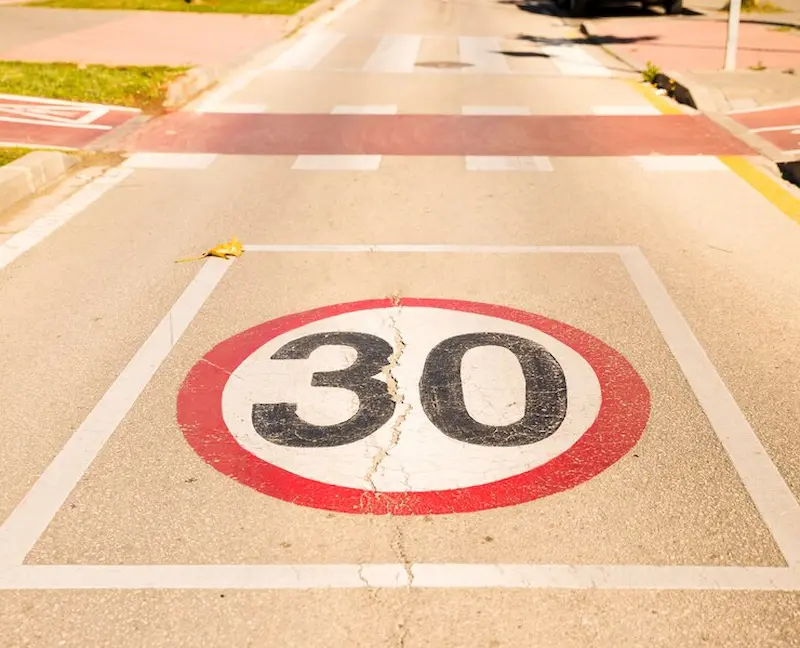
Speed limits are enforced rigorously in Dubai. On average, the speed limits are as follows:
- In cities: 60-80 km/h
- On highways: 100-120 km/h
- On desert roads: 100-120 km/h
Always watch for speed limit signs, and adhere to them to avoid fines.
5. Drunk Driving is a Serious Offense

Dubai has a zero-tolerance policy for drunk driving. The permissible blood alcohol limit is very low, and penalties for violators are severe, including hefty fines and imprisonment.
6. Roundabouts Have Right-of-Way

When approaching a roundabout, vehicles inside the circle have the right-of-way. Always yield to them and enter the roundabout when it’s safe.
7. Parking Regulations

Dubai has strict parking regulations. Only park in designated areas, and be cautious about no-parking zones. Illegally parked vehicles can be towed away, and fines can be steep.
8. Indicators are Essential

Using your indicators while changing lanes or turning is not just good practice; it’s mandatory. Failing to signal can result in fines.
9. Tailgating is Prohibited

Tailgating is a common issue in Dubai, but it’s also illegal. Maintain a safe following distance to avoid fines and accidents.
10. Pedestrian Crossings

Always stop for pedestrians at crosswalks. Failing to do so can result in fines and, more importantly, poses a danger to pedestrians.
11. Salik Tolls
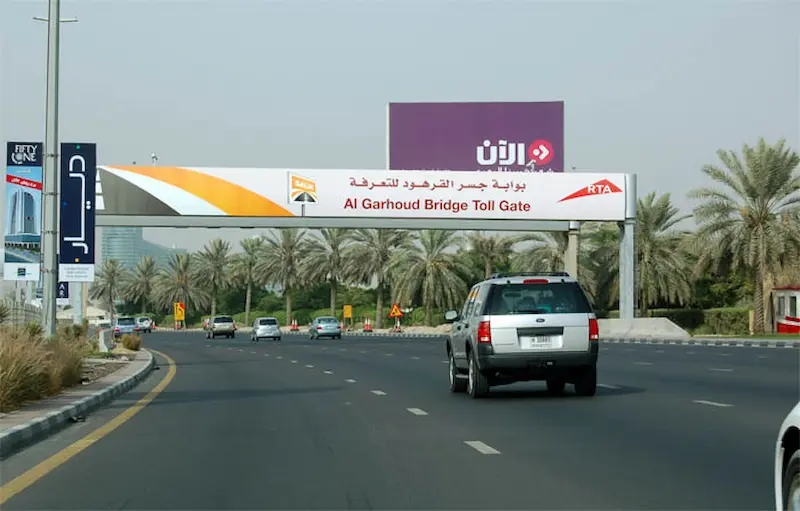
Dubai has toll gates on certain roads, known as Salik gates. Make sure your Salik account is topped up to avoid fines when passing through these gates.
12. Off-Road Driving Rules

If you plan to venture off-road into the desert, ensure you’re aware of the specific rules and safety precautions for desert driving. It’s advisable to go in a group and carry essential supplies.
13. Insurance is a Must

Having comprehensive car insurance is mandatory in Dubai. It provides coverage for accidents and ensures you’re complying with the law.
14. Emergency Numbers
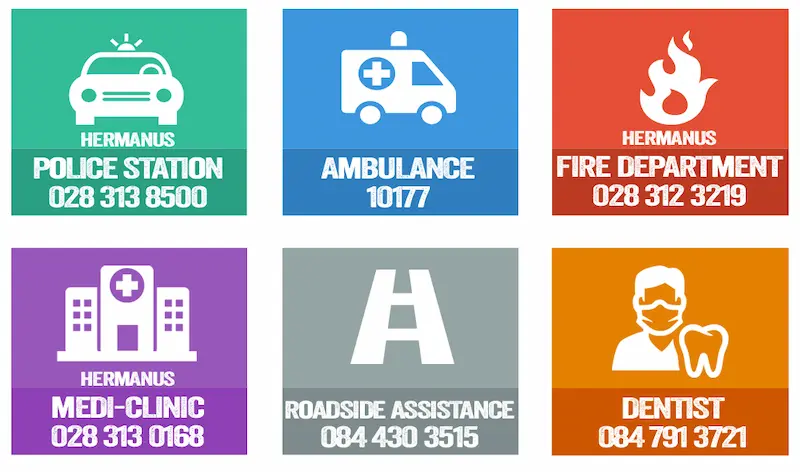
Know the emergency contact numbers in Dubai. Dial 999 for police, 998 for ambulance, and 997 for fire.
15. Follow Road Signs and Signals

Pay attention to traffic signals and road signs. Ignoring them can lead to fines or accidents.
16. Children’s Car Seats
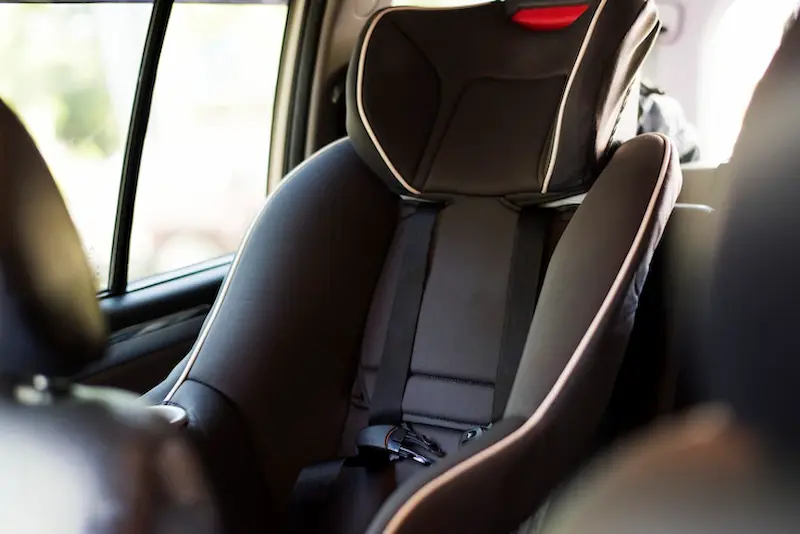
If you’re traveling with children, ensure they are in appropriate car seats based on their age and size. Child safety is a top priority.
17. Hazard Lights

Using hazard lights is only permitted when your vehicle is stationary due to an emergency or accident. Avoid using them while driving.
18. Animals on the Road

Camels and other animals can sometimes stray onto roads in Dubai, especially in rural areas. Be cautious and slow down if you encounter them.
19. No Overtaking School Buses
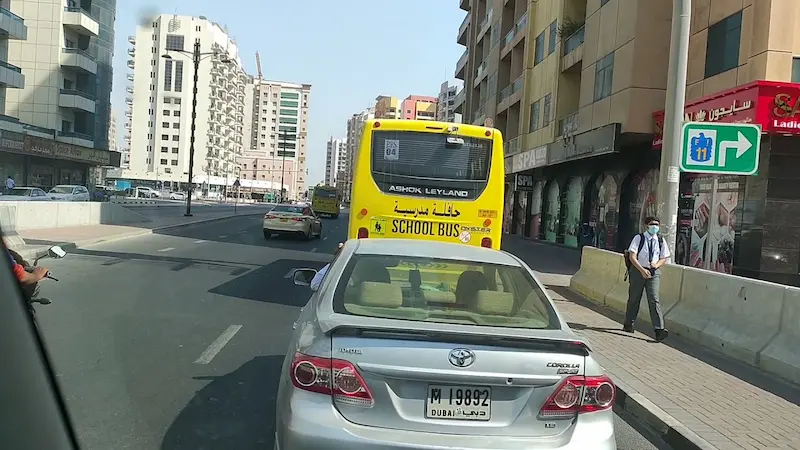
When a school bus stops to pick up or drop off children, it’s illegal to overtake the bus. Wait until the bus continues its journey.
20. Learn the Road Markings
Understanding road markings is crucial. For instance, a solid white line indicates no overtaking, while a broken white line allows overtaking when safe.
Remember, road safety is paramount in Dubai. Familiarize yourself with these rules and drive responsibly to ensure a smooth and incident-free journey in this vibrant city. Safe driving!
Disclaimer: This article provides an overview of driving rules in Dubai, UAE. Rules and regulations may change, so it’s advisable to consult local authorities or official sources for the most up-to-date information.

